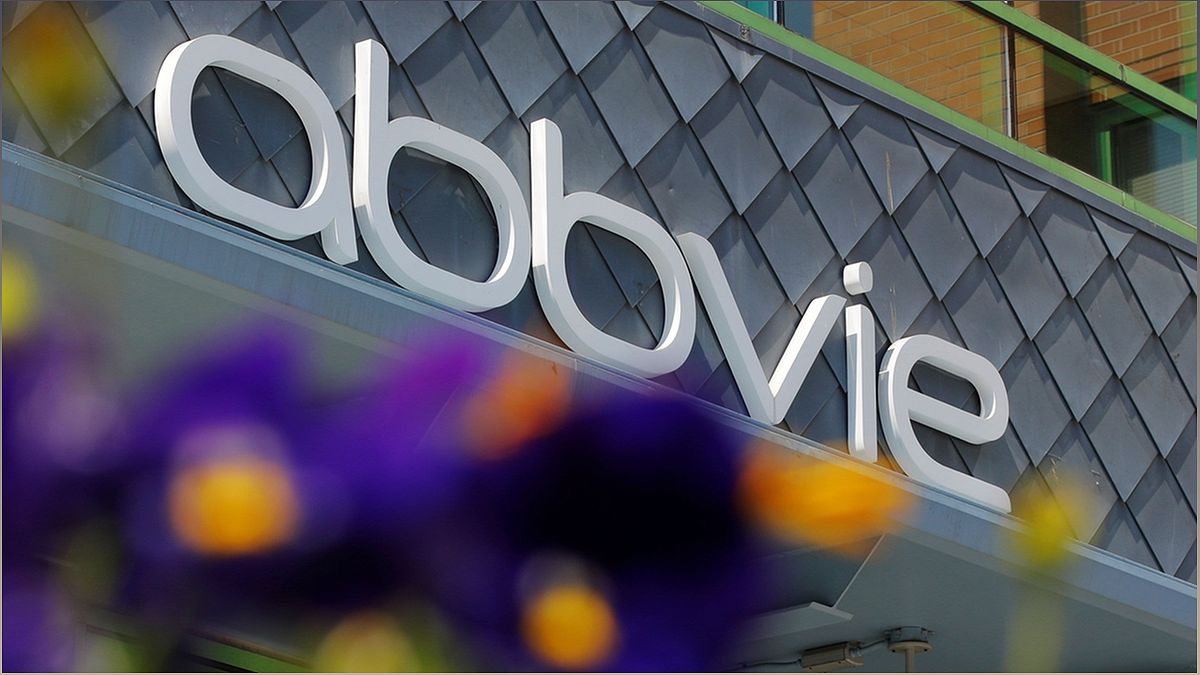AbbVie Inc., a global research-based biopharmaceutical company, has made a significant move within the neuroscience industry by acquiring Cerevel Therapeutics. This $8.7 billion deal aims to strengthen AbbVie's neuroscience pipeline and replace revenue as their blockbuster drug faces new competition. Learn more about this transformative transaction and its potential impact on neurological conditions such as schizophrenia, Parkinson's disease, and mood disorders. Despite the risks involved, AbbVie's strategic acquisition demonstrates their commitment to providing innovative treatment options for patients in the neuroscience field.
AbbVie's Acquisition of Cerevel Therapeutics
AbbVie Inc., a global research-based biopharmaceutical company, has made a significant move within the neuroscience industry by acquiring Cerevel Therapeutics. This $8.7 billion deal aims to strengthen AbbVie's neuroscience pipeline and replace revenue as their blockbuster drug faces new competition.
This acquisition represents a growth opportunity for AbbVie, expanding its existing neuroscience portfolio. It also highlights the potential of Cerevel's late-stage antipsychotic asset, emraclidine. If successful, emraclidine could offer a new treatment option for schizophrenia, a condition that historically has had a high failure rate in drug trials.
Analysts view this acquisition as a risky yet strategic move. Acquiring Cerevel before critical data on emraclidine was available may have allowed AbbVie to avoid a potential bidding war. However, it also exposes AbbVie to the risks associated with clinical trials and potential competition, especially considering Cerevel's two-year lead.
Despite these concerns, the potential payoff from this acquisition is considered high. If emraclidine is successful, it could replace revenue for AbbVie as its current blockbuster drug faces new competition. Additionally, with market exclusivity expected until the early 2040s, AbbVie could secure a long-term advantage in the market.
The acquisition of Cerevel Therapeutics is part of AbbVie's broader expansion strategy. This deal follows AbbVie's recent acquisition of ImmunoGen for $10 billion, demonstrating its intent to strengthen its pipeline and drive revenue growth.
AbbVie's proactive approach to enhancing its neuroscience portfolio through the Cerevel acquisition shows its commitment to providing innovative treatment options for patients with neurological conditions. Despite the inherent risks in drug development, AbbVie's strategic acquisitions indicate a promising future in the neuroscience industry. The success of this bold move will be determined in the next few years, as the transaction is expected to conclude by mid-2024.
Potential Impact on Neurological Conditions
The acquisition of Cerevel by AbbVie is expected to bring a range of assets with potential in several diseases, particularly neurological conditions. One of the key focuses is schizophrenia, a condition that has historically seen a high failure rate in drug trials.
Emraclidine, Cerevel's late-stage antipsychotic asset, holds promise as a potential treatment option for schizophrenia. If successful, it could offer new hope for patients and address the unmet needs in this field.
Additionally, the acquisition could also have implications for other neurological conditions such as Parkinson's disease and mood disorders. AbbVie's expanded neuroscience portfolio may lead to the development of innovative therapies that improve the lives of patients suffering from these conditions.
However, it's important to note that the success of these potential treatments will depend on the outcome of clinical trials and further research. The neuroscience community eagerly awaits the results and impact of AbbVie's acquisition in the coming years.
Risks and Rewards of the Acquisition
AbbVie's acquisition of Cerevel Therapeutics is seen as a risky yet strategic move. By acquiring Cerevel before critical data on their leading asset, emraclidine, was available, AbbVie may have gained an advantage and avoided a potential bidding war.
However, this decision also exposes AbbVie to the risks associated with clinical trials and potential competition. As emraclidine is still in mid-stage studies and lacks substantial data, there is uncertainty surrounding its effectiveness and safety.
Despite these risks, the potential rewards of this acquisition are significant. If emraclidine proves successful, it could replace revenue for AbbVie as their current blockbuster drug faces new competition. Furthermore, with market exclusivity expected until the early 2040s, AbbVie could establish a long-term advantage in the market.
Overall, the success of this bold move will depend on the outcome of clinical trials and the ability of AbbVie to navigate the competitive landscape in the neuroscience industry.
AbbVie's Commitment to Innovation
AbbVie's acquisition of Cerevel Therapeutics is part of their broader expansion strategy in the neuroscience field. This move showcases their dedication to enhancing their neuroscience portfolio and addressing the unmet needs of patients.
By acquiring Cerevel, AbbVie gains access to a range of assets with potential in several diseases, particularly neurological conditions. This positions them to develop and deliver innovative treatment options for conditions such as schizophrenia, Parkinson's disease, and mood disorders.
AbbVie's proactive approach to bolstering their neuroscience pipeline through strategic acquisitions demonstrates their commitment to pushing the boundaries of medical innovation. This acquisition aligns with their mission to improve the lives of patients and make a meaningful impact in the field of neuroscience.
As the transaction concludes by mid-2024, the industry eagerly awaits the outcomes and potential breakthroughs that AbbVie's commitment to innovation may bring.

